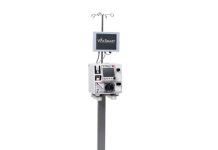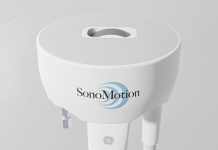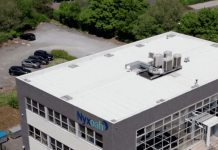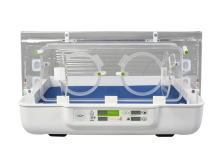Medical technology giant Becton Dickinson & Co., billionaire Bill Gates and Khosla Ventures are among investors backing robotics startup Vicarious Surgical Inc.’s merger with special purpose acquisition company D8 Holdings Corp.

The transaction gives the combined entity an enterprise value of about $1.1 billion, the companies said, confirming an earlier Bloomberg News report.
In addition to Becton Dickinson, Gates and Khosla, other investors set to participate in the deal’s $115 million private investment in public equity, or PIPE, include former Google CEO Eric Schmidt’s Innovation Endeavors and E15 VC, a venture firm. Bloomberg last month reported that Vicarious and D8 were in merger talks.
Charlestown, Massachusetts-based Vicarious, led by Chief Executive Officer Adam Sachs, develops robotics technology with the aim of improving patient outcomes and the efficiency of surgical procedures, while reducing overall health-care costs. Sachs founded the company with Sam Khalifa, its chief technology officer, and Barry Greene, a bariatric and general surgeon, and management will remain in place following the D8 deal.
Vicarious, whose technology has been granted “breakthrough device” designation by the U.S. Food and Drug Administration, is expected to have more than $425 million in cash following the transaction, and estimated 2025 revenues of $355 million.
Hong Kong-based D8’s president Donald Tang will join Vicarious’ board, alongside AIDS researcher David Da-I Ho. The deal is expected to close in the third quarter. Once it is complete, Vicarious is set to trade on the New York Stock Exchange under the symbol RBOT.
D8 was “blown away” by Vicarious’s technology, Tang said in an interview. “After doing due diligence, we were floored by what’s possible in terms of stabilizing surgical procedures,” he said, adding that D8 will seek to leverage its relationships in Asia and elsewhere to help Vicarious expand outside the U.S.
A SPAC merger is the “right path” for Vicarious, Sachs said, as the deal bolsters its cash balance by as much as $345 million without the company having to raise multiple private rounds of funding. “As we move to commercialize our product, being public gives us a level of credibility we may not have had as a private company,” he said.
The company is expected to produce its first year of revenue in 2023 and Sachs said its low cost basis will help its products gain traction. He estimates that Vicarious’ technology, which can be inserted into a patient’s body through a 1.5 centimeter incision, is five to ten times cheaper than legacy surgical robots.






